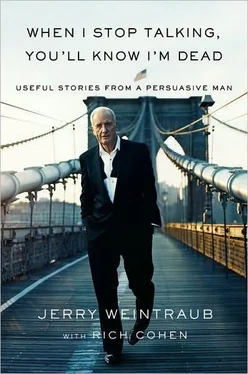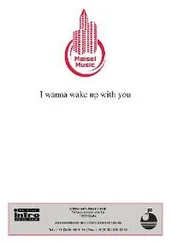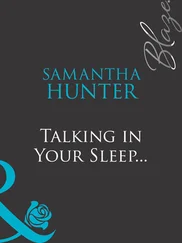"Why?" she said. "You already have two other cars and a truck."
"It's an urge," I said.
We went in. They had just come out with On-Star, the service that tells you where gas stations and restaurants are, gives directions and the rest. I was impressed, saw a future in which no one gets lost and everyone eats just what they want to eat. I left with a new Ford. That night, my father called me. "What are you up to?" he asked.
"Nothing," I said. "Just hanging around."
He said, "Well, why don't you come down to New York and see me?"
"Is anything wrong?"
"No," he said. "Everything is fine. Just take a ride."
"Well, I just bought a new car," I said. "I think I will go for a ride."
Jane and I left for New York in the morning. We were on the road for two hours when my brother called and told us, "Dad is going into the hospital."
"What's wrong with him?"
"I don't know. The doctor says he's fine, but he's insisting he be admitted to the hospital."
It was strange.
We drove on, passed little towns and diners, the road stretching before us. We took a wrong turn in the Bronx and somehow ended up on the streets where I grew up. It was as if something was leading us there, showing us all the settings of my childhood-where my father taught me the value of work, where we hugged in the street after his return from Ceylon. Jane wanted to see everything, all of it. I took her to the old shops and corners. I took her to P.S. 70 and the apartment on the Grand Concourse. We knocked on the door. A woman answered. There were thirty, forty people inside. I think it was a crack house.
Everyone was at the hospital-my nephews and nieces-sitting in the hall, waiting. My brother took me aside.
"What the hell is going on?" I asked.
"I don't know," said Melvyn. "Dad wants to see us in his room alone."
He was sitting up in bed. No tubes, no wires, none of that. He waved us over, brought us close to him. He was lucid and calm. "I want you two guys to know something," he said. "You've been great sons. I love you both very, very much. And I am very proud of you. Now, both of you, give me a hug."
We bent over and hugged him. I could feel his fingers clasping my back. "Now go," he said. "I need to rest."
Later, when we were sitting in the hall, the sirens went off. The nurses and doctors ran into the room, and he died. Lay down and died.
This was June 30, 2000-exactly two months after my mother went.
When my mother was laid out before her funeral she had a pained look on her face. She had gone through hell before she passed. But my father had a peaceful look on his face when he died. He was ninety-three or ninety-four. We never really knew their exact ages. He wasn't in pain, he was just ready. That's how I'd like to die.
Until a few years ago, I was terrified of death. It occupied a lot of my time. Then my friends started to die, contemporaries, like Sydney Pollack, Bernie Brillstein, Guy McElwaine. I went to see Guy at his house, at the end, when he knew he was dying. And you know what? He was smiling.
"What are you smiling at, crazy man?" I asked.
"You," he said, "because I can see that you are afraid of what's happening to me. But I'm not afraid, so why should you be? It's just another journey."
I thought about this again and again. It bothered me. Finally, one night, I sat down with a glass of wine and sort of interrogated myself. "What are you scared of?" I asked. "It's the natural progression, part of the journey. Besides, you can't get out of it. No matter how much you worry, it is going to happen. So why not just face it like you've tried to face everything else?"
The next morning, I went out and bought a cemetery plot. I have come to terms, made peace. Not because of religion, or because of anything I've been told, but because I've lost friends and I've lost family. Maybe this is what happens if you live a long life. Maybe it's the gift of survival. When more of the people who really mattered are gone than remain, the balance tilts to the next world. Your parents go, your friends go, and you realize you will go, too, and it's okay. Death makes the rope taut-without it, we would have no stories, no meaning.
I do not want to leave. I have a nice house and a nice pool and it's a beautiful day and my cellar is filled with wine and my humidor is filled with cigars. I don't want to go anywhere. But when God calls, I will go, and I won't be crying.
Hollywood has changed. There was a golden age and an age of rebellion, and we are now in an age of post-glamour. The stars are faded, the pictures are abbreviated, and the screens are small.
Well, that's what some people tell you-that Hollywood was never the same after the old system was broken-but don't believe it. I have seen era give way to era, can compare epoch to epoch. The stars now are exactly the same as the stars then: The hot spots and clubs have changed, the styles and fashions, but the underlying motivations, the human drives, which are to be discovered and lauded and respected, never change.
Look at the young stars. They go into crazy clubs, get whacked up and whatever, but when the Macombo and Ciro's and Romanoff's were open in the forties and fifties, it was no different. The booze was flowing, Desi Arnaz was singing "Babaloo," and Joan Crawford was dancing on the tables. The media is what changed. The amount of attention, the size of the lens. In the old days, the problem could always be taken care of. The accident was followed by the phone call and the stars were back on the set in the morning. Nowadays, everything is shown on live TV.
Ocean's Eleven, Twelve, and Thirteen, which together grossed over a billion dollars, have been a capstone on my career. I did not produce the 1960 original but was around when it was made and had long wanted to do a remake; it was the perfect vehicle for young Hollywood, a way to put a handful of actors in a frame built for the original Rat Pack-to show that, though times have changed, there are still those who can shed Sinatra-size wattage. Ocean's Eleven screamed to be back on the marquee.
In 1998, I sent the script to Steven Soderbergh and George Clooney, who had a production deal with Warner's. We met at the Smoke House restaurant for one of those legendary meals, after which you know things will be more fun. These guys made the whole thing work. The feat of a project like this is casting, getting huge stars, Matt Damon, Brad Pitt, George Clooney, Elliott Gould, Julia Roberts, Andy Garcia, Don Cheadle to appear and mesh on the same set. Soderbergh and Clooney had everything to do with pulling this off. They contacted the actors and explained the beauty of the project-this is as close as you can get to old Sinatra days. It was important that Clooney made the calls because he got people to take less money and less back end because it was an ensemble piece. When we sent the script to Julia Roberts we attached a twenty-dollar-bill and a note that said, "We know you get twenty for a movie, but you will have to work for a little less on this one."
We had a great time making Ocean's. For the actors, this joy was often expressed in pranks, most of them directed at me. There was the time that, on a long flight back from Europe, Brad and George, knowing that I am a big vodka drinker, challenged me to a contest. I said, "Look, you're making a mistake. You'll end up with your luggage under your seat." They persisted, so we went shot for shot. I passed out after fifteen. The boys then took the opportunity to fill my clothes, pockets, socks, and shoes with M &M's, thousands of them. Candy was coming out of my ears for weeks. I found out later that, as I had been downing Stolichnaya, they had been drinking water. Nice friends. Then there was the time that George Clooney, after a late night, had a huge breakfast delivered to my room at 5:00 A.M. I got so angry, but the room-service operator kept insisting that I had placed the order myself. When I finally asked where the call had come from, she said, "Matt Damon's room, but it was you calling, Mr. Weintraub."
Читать дальше

![Сьюзан Кейн - Quiet [The Power of Introverts in a World That Can't Stop Talking]](/books/33084/syuzan-kejn-quiet-the-power-of-introverts-in-a-wo-thumb.webp)










